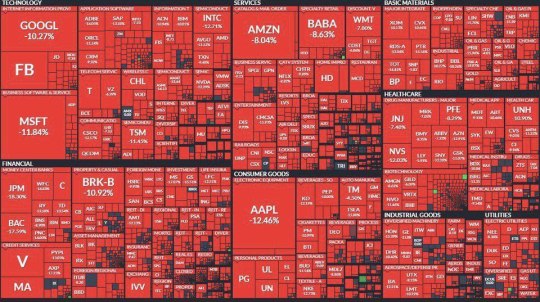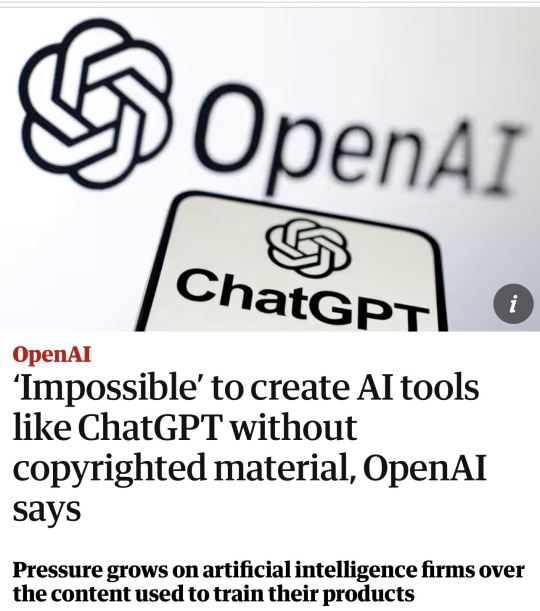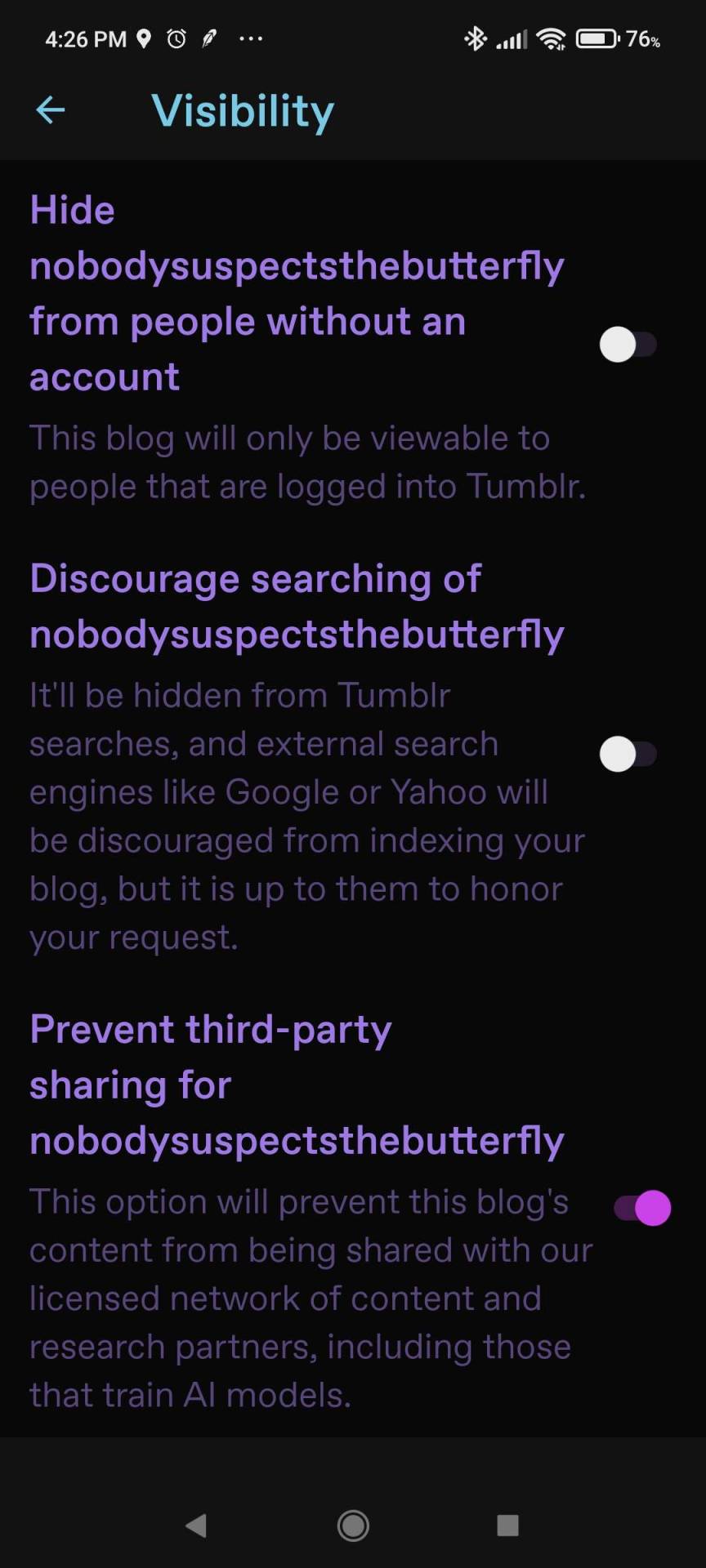#openai chatgpt
Explore tagged Tumblr posts
Text


So on the 27th DeepSeek R1 dropped (a chinese version of ChatGPT that is open source, free and beats GPT's 200 dollar subscription, using less resources and less money) and the tech market just had a loss of $1,2 Trillion.
Source

#market crash#deepseek#deepseek AI#chatgpt#OpenAI#world news#destiel news#im quite late for the news but I havent seen it anywhere on tumblr so#here it is#fuck ai#meh
87K notes
·
View notes
Text
Microsoft domina cenário de IA e atrai líderes como Elon Musk e Sam Altman
\`\`\`html A Microsoft reafirmou sua posição como líder no setor de inteligência artificial (IA) durante o evento anual Build 2024. Com a presença de nomes influentes como Elon Musk (Tesla e xAI), Sam Altman (OpenAI) e Jensen Huang (Nvidia), ficou evidente como a empresa se tornou um polo central no futuro da tecnologia. Esses líderes participaram do evento para discutir o impacto da IA na…
#Elon Musk IA#infraestrutura Azure#inovação tecnológica#inteligência artificial#liderança em IA#Microsoft Build#OpenAI ChatGPT#parcerias estratégicas
0 notes
Text
What Is the AI Chatbot ChatGPT and How Can You Use It Effectively?

ChatGPT is a groundbreaking conversational AI tool developed by OpenAI, designed to understand and generate human-like text using deep learning. As a GPT-powered chatbot based on advanced large language models like GPT-3.5 and GPT-4, ChatGPT can perform a wide range of tasks — from writing essays and answering questions to summarizing documents and generating creative content. Its natural language processing abilities make it one of the most powerful AI text generators available today.
Whether you're a student looking for help with assignments, a professional seeking writing assistance, or a developer integrating AI into your product, ChatGPT offers versatile solutions. The tool is especially popular among students and content creators for tasks like brainstorming, drafting blog posts, and even preparing for interviews or exams. It’s not just a chatbot — it’s a natural language AI assistant that can act as your tutor, research buddy, or productivity coach, depending on how you use it.
This guide covers all major ChatGPT use cases, from basic conversation to advanced ChatGPT prompts that unlock its full potential. You’ll also learn how businesses are leveraging ChatGPT integration in apps to automate customer support, streamline workflows, and deliver personalized user experiences. The tool's adaptability makes it a game-changer across industries like education, marketing, and customer service.
Whether you're curious about how AI chatbots for students work or want to integrate a chatbot powered by GPT-4 into your digital platform, this article will show you how to use ChatGPT more effectively. Dive in to explore its features, benefits, limitations, and expert tips to make the most of this revolutionary technology.
0 notes
Text
घिबली स्टाइल इमेज: सोशल मीडिया पर क्यों मचा है हंगामा, जानें इसे फ्री में कैसे बनाएँ! #News #HindiNews #IndiaNews #RightNewsIndia
#free Ghibli AI tools#Ghibli art trend#Ghibli style image#GPT-4o image tool#Grok AI#Hayao Miyazaki#how to create Ghibli images#OpenAI ChatGPT#Social Media Viral#Studio Ghibli
0 notes
Text


this reply kills me 😭 article link
73K notes
·
View notes
Text

ChatGPT is back online after a global outage…
See More...
#chatgpt#openai chatgpt outage#chat gpt#is chatgpt down#chat gpt down#openai#is chat gpt down#why is chat gpt not working#is chatgpt down right now#chatgpt status#chatgpt not working#chatgpt is currently unavailable.#chatgpt unavailable#openai chatgpt#chat gpt not working today
1 note
·
View note
Text

How does ChatGPT work?
Imagine having a conversation with a chatbot that feels almost human. That’s exactly what OpenAI ChatGPT brings to the table. The remarkable technology of Generative Pre-trained Transformer (GPT) powers it.
ChatGPT utilizes Natural Language Processing (NLP) techniques. These help it to learn from past conversations and generate response options.
It is trained on massive amounts of human interaction data. This results in an AI that can understand and have conversations like humans. It was released as a free research preview/prototype in November 2022. It is powered by a machine learning model called GPT-3, developed by OpenAI.
Click here to read more-
#artificial intelligence chat gpt#chat ai#artificial intelligence openai#openai chatgpt#ai chat gpt#ai chatgpt#chat gpt ai#ai gpt#open ai chatbot#blog#nitorinfotech#software development#software services#software engineering#artificial intelligence#ascendion
0 notes
Text
Want to hear something funny? Akinator would have been called AI if it was released today. None of this "AI" bullshit is actually anything intelligent. It's programs and algorithms and computer mimicry. It learns nothing. Chatgpt and openai and midjourney are just Akinator. The term "AI" is just a marketting ploy thats working painfully well with the people who don't understand that this tech has been around and in use for YEARS. Akinator was relased in 2007. Its just slightly more advanced Akinator tech, but its not anything artificially intelligent. I really wish we'd stop calling it "AI"
10K notes
·
View notes
Text
youtube
The decision by both Russia and China to ban ChatGPT, an advanced conversational AI developed by OpenAI, has sent shockwaves throughout the global tech community and sparked intense debates on the implications of such actions. The bans, imposed almost simultaneously by two of the world's most influential nations, raise profound questions about the intersection of technology, politics, and security in the digital age. In this video, we'll explore why Russia and China have banned Chat GPT.
In Russia, the ban on ChatGPT comes amidst a broader crackdown on online platforms and technologies perceived as threatening the country's political stability and national security. The Russian government has long been wary of the potential for AI-powered tools to be used for disinformation campaigns, propaganda, and the spread of anti-government sentiment. With ChatGPT's ability to generate human-like text responses based on prompts, there are concerns that it could be exploited by malicious actors to manipulate public opinion or disseminate false information on a massive scale.
Moreover, the Russian authorities may also be concerned about ChatGPT's potential to facilitate anonymous communication and circumvent censorship measures. In a country where online dissent is increasingly met with harsh repression, the prospect of a tool that enables uncensored dialogue and free expression could be seen as a direct threat to the government's control over the flow of information.
Similarly, in China, where the government maintains strict control over the internet and monitors online activity with sophisticated censorship tools, the ban on ChatGPT reflects broader concerns about the potential for AI technologies to undermine state authority and social stability. China has a long history of tightly regulating online speech and expression, with platforms like WeChat and Weibo subject to extensive content moderation and surveillance. The proliferation of AI-powered chatbots and virtual assistants, like ChatGPT, could present new challenges to the government's efforts to control the flow of information and suppress dissenting voices.
The bans on ChatGPT by Russia and China highlight the growing tensions between technological innovation and government control in an increasingly interconnected world. While AI has the potential to revolutionize communication, commerce, and countless other aspects of human society, it also presents new challenges and risks that governments are struggling to address. As the capabilities of AI continue to evolve, policymakers will face difficult decisions about balancing the benefits of innovation with the need to protect against its potential misuse and abuse.
Why Russia and China Have Banned Chat GPT
#why russia and china have banned chat gpt#why russia has banned chat gpt#why china has banned chat gpt#chatgpt#chatbot#how to use chat gpt in china#how to use chat gpt in russia#how to access chatgpt in china#how to access chatgpt in russia#how to use chat gpt#chatgpt banned#russia banned chatgpt#china banned chatgpt#ai chatbot#chatgpt ai#openai chatgpt#openai chatbot gpt#limitless tech 888#why chatgpt unavailable in russia#why chatgpt unavailable in china#Youtube
0 notes
Text
youtube
The decision by both Russia and China to ban ChatGPT, an advanced conversational AI developed by OpenAI, has sent shockwaves throughout the global tech community and sparked intense debates on the implications of such actions. The bans, imposed almost simultaneously by two of the world's most influential nations, raise profound questions about the intersection of technology, politics, and security in the digital age. In this video, we'll explore why Russia and China have banned Chat GPT.
In Russia, the ban on ChatGPT comes amidst a broader crackdown on online platforms and technologies perceived as threatening the country's political stability and national security. The Russian government has long been wary of the potential for AI-powered tools to be used for disinformation campaigns, propaganda, and the spread of anti-government sentiment. With ChatGPT's ability to generate human-like text responses based on prompts, there are concerns that it could be exploited by malicious actors to manipulate public opinion or disseminate false information on a massive scale.
Moreover, the Russian authorities may also be concerned about ChatGPT's potential to facilitate anonymous communication and circumvent censorship measures. In a country where online dissent is increasingly met with harsh repression, the prospect of a tool that enables uncensored dialogue and free expression could be seen as a direct threat to the government's control over the flow of information.
Similarly, in China, where the government maintains strict control over the internet and monitors online activity with sophisticated censorship tools, the ban on ChatGPT reflects broader concerns about the potential for AI technologies to undermine state authority and social stability. China has a long history of tightly regulating online speech and expression, with platforms like WeChat and Weibo subject to extensive content moderation and surveillance. The proliferation of AI-powered chatbots and virtual assistants, like ChatGPT, could present new challenges to the government's efforts to control the flow of information and suppress dissenting voices.
Additionally, both Russia and China may have security concerns about the potential for ChatGPT to be used for espionage or cyberattacks. Given the AI's ability to generate convincingly human-like text, there are fears that it could be used to impersonate individuals or organizations in phishing scams, social engineering attacks, or other forms of cybercrime. Moreover, using AI-generated content to spread malware or infiltrate sensitive networks could pose serious risks to national security and economic stability.
#ChatGPT#Chatbot#ChatGPTBanned#RussiaBannedChatGPT#ChinaBannedChatGPT#AIChatbot#ChatGPTAI#OpenAIChatGPT#OpenAIChatbotGPT#LimitLessTech#AI
Why Russia and China Have Banned Chat GPT
#why russia and china have banned chat gpt#why russia has banned chat gpt#why china has banned chat gpt#chatgpt#chatbot#how to use chat gpt in china#how to use chat gpt in russia#how to access chatgpt in china#how to access chatgpt in russia#how to use chat gpt#chatgpt banned#russia banned chatgpt#china banned chatgpt#ai chatbot#chatgpt ai#openai chatgpt#openai chatbot gpt#limitless tech 888#why chatgpt unavailable in russia#why chatgpt unavailable in china#Youtube
0 notes
Text
The problem here isn’t that large language models hallucinate, lie, or misrepresent the world in some way. It’s that they are not designed to represent the world at all; instead, they are designed to convey convincing lines of text. So when they are provided with a database of some sort, they use this, in one way or another, to make their responses more convincing. But they are not in any real way attempting to convey or transmit the information in the database. As Chirag Shah and Emily Bender put it: “Nothing in the design of language models (whose training task is to predict words given context) is actually designed to handle arithmetic, temporal reasoning, etc. To the extent that they sometimes get the right answer to such questions is only because they happened to synthesize relevant strings out of what was in their training data. No reasoning is involved […] Similarly, language models are prone to making stuff up […] because they are not designed to express some underlying set of information in natural language; they are only manipulating the form of language” (Shah & Bender, 2022). These models aren’t designed to transmit information, so we shouldn’t be too surprised when their assertions turn out to be false.
ChatGPT is bullshit
7K notes
·
View notes
Text
AI hasn't improved in 18 months. It's likely that this is it. There is currently no evidence the capabilities of ChatGPT will ever improve. It's time for AI companies to put up or shut up.
I'm just re-iterating this excellent post from Ed Zitron, but it's not left my head since I read it and I want to share it. I'm also taking some talking points from Ed's other posts. So basically:
We keep hearing AI is going to get better and better, but these promises seem to be coming from a mix of companies engaging in wild speculation and lying.
Chatgpt, the industry leading large language model, has not materially improved in 18 months. For something that claims to be getting exponentially better, it sure is the same shit.
Hallucinations appear to be an inherent aspect of the technology. Since it's based on statistics and ai doesn't know anything, it can never know what is true. How could I possibly trust it to get any real work done if I can't rely on it's output? If I have to fact check everything it says I might as well do the work myself.
For "real" ai that does know what is true to exist, it would require us to discover new concepts in psychology, math, and computing, which open ai is not working on, and seemingly no other ai companies are either.
Open ai has already seemingly slurped up all the data from the open web already. Chatgpt 5 would take 5x more training data than chatgpt 4 to train. Where is this data coming from, exactly?
Since improvement appears to have ground to a halt, what if this is it? What if Chatgpt 4 is as good as LLMs can ever be? What use is it?
As Jim Covello, a leading semiconductor analyst at Goldman Sachs said (on page 10, and that's big finance so you know they only care about money): if tech companies are spending a trillion dollars to build up the infrastructure to support ai, what trillion dollar problem is it meant to solve? AI companies have a unique talent for burning venture capital and it's unclear if Open AI will be able to survive more than a few years unless everyone suddenly adopts it all at once. (Hey, didn't crypto and the metaverse also require spontaneous mass adoption to make sense?)
There is no problem that current ai is a solution to. Consumer tech is basically solved, normal people don't need more tech than a laptop and a smartphone. Big tech have run out of innovations, and they are desperately looking for the next thing to sell. It happened with the metaverse and it's happening again.
In summary:
Ai hasn't materially improved since the launch of Chatgpt4, which wasn't that big of an upgrade to 3.
There is currently no technological roadmap for ai to become better than it is. (As Jim Covello said on the Goldman Sachs report, the evolution of smartphones was openly planned years ahead of time.) The current problems are inherent to the current technology and nobody has indicated there is any way to solve them in the pipeline. We have likely reached the limits of what LLMs can do, and they still can't do much.
Don't believe AI companies when they say things are going to improve from where they are now before they provide evidence. It's time for the AI shills to put up, or shut up.
5K notes
·
View notes
Text
Can Social AI Platforms Like Chai Cure Anxiety In Teen Girls?

The advent of social AI platforms like Chai has created new opportunities to investigate how technology affects mental health. With more than two million users, Chai is a platform that lets people create and communicate with personalized chat AIs. New research indicates that Chai could be quite beneficial, especially for young women who are struggling with mental health issues, such social anxiety.
A thorough study of 5,260 Chai users provides insight into the possible advantages of social AI for mental health. The preliminary findings are promising, suggesting that notable progress was made, especially for women. Of the participants, 38.9% said that interacting with chat AIs helped them control their anxiety, and 43.4% strongly agreed that it had a good impact on their mental health.
These results are especially relevant in light of the rising rates of anxiety and mental health issues, especially in the teen population. The U.S. Centers for Disease Control and Prevention report that anxiety and depression rates among teenagers are rising, with 5.8 million people affected by the 9.4% of children and adolescents with anxiety disorders.
The positive effects that Chai users—especially young women—have reported raise the possibility that social AI platforms could be an effective tool for addressing these mental health issues. With the increasing accessibility of technology, there is a rare chance to improve mental health and offer assistance to individuals experiencing anxiety and other related problems.
Read More - https://bit.ly/47Ehjgs
0 notes
Text
OpenAI ChatGPT Facing Financial Troubles, May Go Bankrupt
OpenAI’s ChatGPT is facing declining usage and financial trouble. The company may go bankrupt by 2024.

OpenAI’s ChatGPT was one of the most popular apps of 2022, but its usage has been declining in recent months. The company is also facing financial trouble, spending millions of dollars each day to maintain ChatGPT. If OpenAI can’t turn things around, it may go bankrupt by 2024.
What does this mean for the future of AI? Will ChatGPT be the last great AI chatbot? Or will another company come along and create a better, more popular chatbot? Only time will tell. But one thing is for sure: the future of AI is exciting, and OpenAI is playing a major role in shaping it.
Source: Economic Insider
Also Read: Small Business Financing Evolved: The Merchant Marketplace Story
#OpenAI#ChatGPT#OpenAI ChatGPT#Open AI#AI#Artificial Intelligence#Bankruptcy#Business#Finance#Economic Insider
0 notes
Text
FYI artists and writers: some info regarding tumblr's new "third-party sharing" (aka selling your content to OpenAI and Midjourney)
You may have already seen the post by @staff regarding third-party sharing and how to opt out. You may have also already seen various news articles discussing the matter.
But here's a little further clarity re some questions I had, and you may too. Caveat: Not all of this is on official tumblr pages, so it's possible things may change.
(1) "I heard they already have access to my data and it doesn't really matter if I opt out"
From the 404 article:
A new FAQ section we reviewed is titled “What happens when you opt out?” states “If you opt out from the start, we will block crawlers from accessing your content by adding your site on a disallowed list. If you change your mind later, we also plan to update any partners about people who newly opt-out and ask that their content be removed from past sources and future training.”
So please, go click that opt-out button.
(2) Some future user: "I've been away from tumblr for months, and I just heard about all this. I didn't opt out before, so does it make a difference anymore?"
Another internal document shows that, on February 23, an employee asked in a staff-only thread, “Do we have assurances that if a user opts out of their data being shared with third parties that our existing data partners will be notified of such a change and remove their data?” Andrew Spittle, Automattic’s head of AI replied: “We will notify existing partners on a regular basis about anyone who's opted out since the last time we provided a list. I want this to be an ongoing process where we regularly advocate for past content to be excluded based on current preferences. We will ask that content be deleted and removed from any future training runs. I believe partners will honor this based on our conversations with them to this point. I don't think they gain much overall by retaining it.”
It should make a difference! Go click that button.
(3) "I opted out, but my art posts have been reblogged by so many people, and I don't know if they all opted out. What does that mean for my stuff?"
This answer is actually on the support page for the toggle:
This option will prevent your blog's content, even when reblogged, from being shared with our licensed network of content and research partners, including those that train AI models.
And some further clarification by the COO and a product manager:
zingring: A couple people from work have reached out to let me know that yes, it applies to reblogs of "don't scrape" content. If you opt out, your content is opted out, even in reblog form. cyle: yep, for reblogs, we're taking it so far as "if anybody in the reblog trail has opted out, all of the content in that reblog will be opted out", when a reblog could be scraped/shared.
So not only your reblogged posts, but anyone who contributed in a reblog (such as posts where someone has been inspired to draw fanart of the OP) will presumably be protected by your opt-out. (A good reason to opt out even if you yourself are not a creator.)
Furthermore, if you the OP were offline and didn't know about the opt-out, if someone contributed to a reblog and they are opted out, then your original work is also protected. (Which makes it very tempting to contribute "scrapeable content" now whenever I reblog from an abandoned/disused blog...)
(4) "What about deleted blogs? They can't opt out!"
I was told by someone (not official) that he read "deleted blogs are all opted-out by default". However, he didn't recall the source, and I can't find it, so I can't guarantee that info. If I get more details - like if/when tumblr puts up that FAQ as reported in the 404 article - I will add it here as soon as I can.
Edit, tumblr has updated their help page for the option to opt-out of third-party sharing! It now states:
The content which will not be shared with our licensed network of content and research partners, including those that train AI models, includes: • Posts and reblogs of posts from blogs who have enabled the "Prevent third-party sharing" option. • Posts and reblogs of posts from deleted blogs. • Posts and reblogs of posts from password-protected blogs. • Posts and reblogs of posts from explicit blogs. • Posts and reblogs of posts from suspended/deactivated blogs. • Private posts. • Drafts. • Messages. • Asks and submissions which have not been publicly posted. • Post+ subscriber-only posts. • Explicit posts.
So no need to worry about your old deleted blogs that still have reblogs floating around. *\o/*
But for your existing blogs, please use the opt out option. And a reminder of how to opt out, under the cut:
The opt-out toggle is in Blog Settings, and please note you need to do it for each one of your blogs / sideblogs.
On dashboard, the toggle is at https://www.tumblr.com/settings/blog/blogname [replace "blogname" as applicable] down by Visibility:

For mobile, you need the most recent update of the app. (Android version 33.4.1.100, iOs version 33.4.) Then go to your blog tab (the little person icon), and then the gear icon for Settings, then click Visibility.

Again, if you have a sideblog, go back to the blog tab, switch to it, and go to settings again. Repeat as necessary.
If you do not have access to the newest version of the app for whatever reason, you can also log into tumblr in your mobile browser. Same URL as per desktop above, same location.
Note you do not need to change settings in both desktop and the app, just one is fine.
I hope this helps!
#tumblr#[tumblr]#third party sharing#openai#midjourney#chatgpt#ai art#ai#fyi#psa#anti-FUD#artists on tumblr#writers on tumblr#illustrators on tumblr#tumblr update#oh tumblr#hellsite (derogatory)#“opt out” no longer looks like a word#but still#opt out my friends#please#also if you want to leave tumblr i don't blame you but please remember to hit that opt-out button before you go
4K notes
·
View notes
Note
BDS includes OpenAi, a company which partners directly with the IDF to power their weapons targeting Palestinian children.
BDS actually includes a very finite list of specific companies chosen strategically as consumer boycott targets to ensure their boycotts are focused and effective--randomly claiming whatever bullshit you feel like is on that list is actively detrimental to its goals
#ask#pathetic behaviour lol#also really funny thign to send to me im famous for loving openai and chatgpt
238 notes
·
View notes